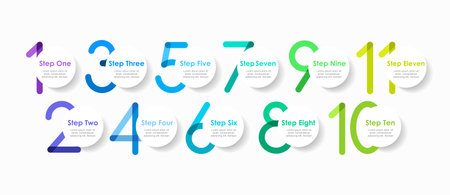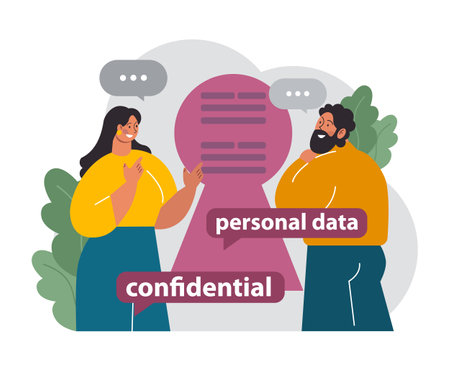Setting the Scene: The British Landscape of Spiritual Guidance
Step quietly into the heart of Britain, and you’ll discover a landscape where ancient cathedrals cast long shadows over bustling high streets, and village churches still ring their bells on Sunday mornings. Here, spiritual guidance is woven into the tapestry of daily life, often subtle but ever-present—a gentle hand at the shoulder in times of uncertainty. Traditionally, spiritual counselling in the UK has been rooted in face-to-face encounters, shaped by centuries-old rituals and an unspoken trust between guide and seeker. These moments—whether whispered prayers in a stone chapel or heartfelt conversations over a cup of tea—have nurtured not only individual faith but also the collective wellbeing of communities. The British way is marked by quiet resilience and a preference for understatement; spirituality often finds its expression not in grand gestures, but in small acts of kindness, shared silences, or the steady presence of a counsellor who truly listens. In this space, faith isn’t just personal; it’s communal, forming invisible threads that tie people to one another and to something greater than themselves. The question now arises: as digital technology reshapes every corner of modern life, can these deeply-rooted traditions be translated into an online realm without losing their soulful essence?
2. Digital Transformation: A New Dawn for Spiritual Support
As dusk settles over the rolling hills and ancient stone circles of the UK, a new kind of spiritual companion quietly arrives—not cloaked in incense or candlelight, but shimmering through pixels and wireless signals. The British have always valued introspection—a quiet cup of tea by a rain-soaked window, a solitary walk along a windswept coast, or an earnest conversation in a village church. Now, digital spiritual guidance offers these moments of reflection through apps, online platforms, and virtual communities.
The Emergence of Digital Spiritual Tools
Today’s seekers can download meditation guides rooted in Celtic wisdom, join mindfulness groups inspired by Quaker silence, or find virtual chaplaincy sessions tailored to the nuanced needs of British life. These innovations are more than just technological upgrades—they are invitations to explore the soul with the convenience and privacy that modern Britons so often seek.
How Digital Platforms Resonate with British Values
The uniquely British approach to spiritual support prizes subtlety, respect for personal space, and gentle encouragement over spectacle. Digital solutions echo these values by offering on-demand access, anonymity, and a sense of gentle community. For many, it’s less about dramatic transformation and more about the quiet unfolding of self-awareness—something that fits neatly between the lines of daily life.
Comparing Traditional and Digital Spiritual Support
| Aspect | In-Person Counselling | Digital Spiritual Guidance |
|---|---|---|
| Accessibility | Limited by geography & scheduling | Available anytime, anywhere in the UK |
| Anonymity | Face-to-face interaction; limited privacy | Can remain anonymous; private engagement |
| Cultural Resonance | Deeply rooted in local traditions | Adaptable to individual backgrounds & beliefs |
| Community Feel | Localised, often smaller groups | Larger virtual communities spanning regions |
| Cost & Accessibility | Often fee-based; NHS waitlists long | Many free or low-cost options; instant access |
This digital dawn is not about erasing tradition but weaving it into new forms—allowing ancient wisdom to flow through contemporary channels. As we’ll see in later sections, this evolution prompts both hope and hesitation among those seeking solace on their own terms.

3. Human Connection: The Heartbeat of In-Person Counselling
Step into any traditional British counselling room—a space perhaps adorned with a well-worn armchair, the gentle chime of a clock, and the quiet offer of a cup of tea—and you’ll discover more than just conversation. In-person counselling, deeply woven into the UK’s cultural landscape, provides an irreplaceable warmth that digital spiritual guidance often struggles to replicate. There’s a uniquely British subtlety in the way therapists interpret silences, read between the lines, and create a sanctuary for vulnerability; it’s a gentle dance shaped by centuries of stoicism and emotional reserve. The nuance of body language, a comforting gesture, or even the unspoken understanding that can pass in a glance—these are the threads that tie counsellor and client together in real time. For many across the UK, where “how are you?” is both greeting and invitation to deeper truth, this face-to-face connection becomes the heartbeat of healing. It honours local customs, respects personal boundaries, and resonates with our collective longing for genuine presence—a presence that grounds us amidst life’s storms and gently guides us towards transformation.
4. Trust and Privacy: British Values in the Digital Age
In the heart of the UK, where the art of understatement meets a longstanding reverence for personal boundaries, questions of trust and privacy are not merely technical—they are profoundly cultural. When considering whether digital spiritual guidance can truly stand in for face-to-face counselling, these concerns come to the fore. Britons have always valued discretion, particularly when it comes to matters of the soul; sharing one’s inner landscape is a delicate act, built on an unspoken contract of confidentiality.
Confidentiality in Counselling: In-Person vs Digital
| Aspect | In-Person Counselling | Digital Spiritual Guidance |
|---|---|---|
| Confidentiality Assurance | Physical privacy, established protocols | Reliant on secure platforms, data protection measures |
| Trust Building | Personal rapport, body language cues | Dependent on user experience and platform transparency |
| Risk of Data Breach | Minimal (locked records, private rooms) | Potentially higher (cybersecurity threats) |
The British Preference for Discretion
The British approach to counselling often leans towards quiet dignity—a gentle nod, a softly spoken “I understand.” This preference for subtlety and privacy extends to digital realms. Yet, there is a tension: while technology promises accessibility and anonymity, it can also feel impersonal and potentially exposed. For many in the UK, the idea that sensitive spiritual conversations might be stored on a remote server raises unease. There remains a lingering question—can the promise of encryption ever truly replace the reassuring hush of a private room?
Cultural Implications for Digital Guidance
The success of digital spiritual services in Britain will hinge on how well they honour these cultural norms. Platforms must go beyond regulatory compliance; they need to cultivate genuine trust by embodying transparency and allowing users control over their data. A clear privacy policy is only the beginning—ongoing reassurance through robust security measures and open communication is essential.
Navigating Trust in the Digital Age
If digital spiritual guidance is to win British hearts, it must weave together technological innovation with age-old values: respect for silence, discretion in dialogue, and unwavering confidentiality. The journey from screen to soul requires more than just convenience—it asks for trust built quietly, one careful click at a time.
5. Hybrid Healing: The Emerging Middle Path
In a quietly bustling café in Bristol, Emma sits with her phone propped against a teacup, headphones in, as she shares her week with her spiritual mentor via video call. Later that month, she takes the train to a tranquil retreat in the Lake District, meeting the same mentor for an afternoon walk among ancient oaks. This tapestry of digital connection and face-to-face presence is increasingly familiar across Britain—a blend not just of convenience and intimacy, but of heritage and innovation.
For practitioners like Dr. James Patel in Manchester, the hybrid model is both necessity and choice. “There’s something deeply British about holding onto tradition while exploring new horizons,” he muses. In his practice, clients book online sessions for daily check-ins—quick, reassuring touchpoints amid hectic schedules. Yet, when deeper healing work is needed, they gather in person: perhaps in a softly lit room or on a windswept Yorkshire moor, where the landscape itself becomes part of the healing journey.
This emerging middle path echoes the British love for balance—a cup of tea after a day’s rush, a Sunday roast grounding us after a week spent online. It acknowledges that digital spiritual guidance can offer immediacy and accessibility; yet it also honours the irreplaceable magic of human presence: the warmth of shared laughter, the comfort of eye contact, the subtle energies exchanged in silence.
Many find this blend liberating. Sophie, a university student in Edinburgh, tells how video meditations fit neatly between lectures, giving her space to breathe without leaving campus. But when anxiety peaks, she values gathering with others at her local mindfulness group—sharing stories under stained-glass windows that have witnessed centuries of hope and healing.
The hybrid approach is not merely a compromise; it’s a uniquely British evolution—one that respects our past even as it embraces tomorrow. By weaving together digital threads and face-to-face encounters, individuals and guides across the UK are crafting new rituals for modern souls: grounded in tradition, yet open to transformation.
6. Looking Ahead: The Future of Spiritual Guidance in the UK
The landscape of spiritual support across the United Kingdom is gently shifting, shaped by the winds of digital transformation and the enduring traditions of face-to-face connection. As we look ahead, it’s clear that neither digital nor in-person approaches will disappear; instead, their roles are destined to evolve and intertwine in ways both unexpected and deeply meaningful for individuals and communities alike.
Blending Tradition with Technology
Imagine a future where the wisdom found in a quiet church pew or a sacred circle is complemented by intuitive guidance accessed at the tap of a screen. Digital platforms, already weaving themselves into the fabric of daily life from Edinburgh to Cornwall, are poised to expand their reach—offering accessible, immediate support for those whose schedules, locations, or personal preferences once made spiritual guidance seem out of reach. Yet, the British reverence for local community spaces and face-to-face authenticity remains strong, hinting at a hybrid future where both modalities nourish our collective soul.
Cultivating Connection Across Distance
In this unfolding era, digital guidance may serve as a bridge—connecting individuals who feel isolated or unheard with mentors and peers who understand their unique journeys. For some, this means late-night solace via an app after a long London commute; for others, it’s joining a virtual meditation circle from the wilds of Wales. Still, there will always be those drawn to the tactile comfort of a counsellor’s office or the shared silence in a stone chapel on a rainy afternoon. Both paths honour our need for connection—one through pixels and code, the other through presence and ritual.
A Tapestry Woven Together
As these approaches continue to evolve alongside British society itself, what emerges is not competition but collaboration—a tapestry woven from ancient threads and new technologies. This dynamic interplay invites each person to choose what resonates most deeply with their spirit at any given moment. It also challenges spiritual leaders, counsellors, and seekers alike to remain open-hearted and adaptable as they navigate this changing landscape together.
Ultimately, whether guided by a softly spoken word over tea or an inspiring message delivered digitally at dawn, the heart of spiritual guidance in the UK will remain rooted in compassion, curiosity, and community. By embracing both innovation and tradition, we stand poised to nurture not only individual wellbeing but also the collective spirit stretching from city streets to rolling moors—ensuring that no one need ever journey alone.


